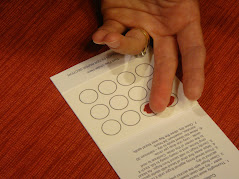The battle for T3
Among the most important insights on what is desirable or ideal in thyroid measures comes from the provocative findings of the the HUNT Study. The text of the study can be found at:
Thyrotropin levels and risk of fatal coronary heart disease: the HUNT study.
The HUNT Study was the largest thyroid study ever performed. In this particular substudy, an incredible 25,000 people were included. The surprising conclusion: Thyroid-stimulating hormone (TSH) levels even in the "normal" range correlated with cardiovascular events such as heart attack. Risk began at TSH values as low as 1.5 mIU/ml or greater. (The higher the TSH, the poorer the thyroid function.)
Hypothyroidism, or low thyroid that is signaled by high TSH, is proving far more prevalent an issue than previously thought. While previous estimates put hypothyroidism as affecting only about 3% of younger populations, 10-20% of older populations (women more so), data like the HUNT Study suggest that, if lower and lower TSH levels (higher thyroid) are necessary for perfect heart health, then many more people stand to benefit than we used to think.
But another crucial issue in the world of hypothyroidism: Is T4 (thyroxine) enough? Or should we be supplementing T3 (triiodothyronine) along with T4?
Your friendly neighborhood primary care doctor or endocrinologist would likely argue vehemently that T4 (as Synthroid, Levoxyl, levothyroxine, and others) is adequate and not subject to the impurities and contaminants of natural thyroid extracts. They would also argue that T4 is effectively converted to T3 at the tissue level, and exogenous supplementation is unnecessary.
Others--most of all thyroid patients themselves, along with thyroid advocates like Mary Shomon and Janie Bowthorpe, along with some physicians--argue that supplementing T3 along with T4 can be very important for some people. They argue that people feel better, have more physical energy, lose weight more effectively, and more completely resolve many of the phenomena of hypothyroidism with T3 added. There are also some data that argue the same, although the data are clearly incomplete and vary in findings:
Treatment of Hypothyroidism with Combinations of Levothyroxine plus Liothyronine
Adding T3 to the mix may address the presumed poor conversion of T4 to T3 that is peculiar to some people. It may overcome the "reverse T3" phenomenon, the production of a useless look-alike T3 that occurs in some people. It may also (anecdotally) exert greater effects on some lipid/lipoprotein parameters, such as LDL cholesterol and Lp(a).
My experiences adding T3 to T4 have been strongly positive: 70% feel better, while 30% do not. Some show objective improvements, others do not.
Thyrotropin levels and risk of fatal coronary heart disease: the HUNT study.
The HUNT Study was the largest thyroid study ever performed. In this particular substudy, an incredible 25,000 people were included. The surprising conclusion: Thyroid-stimulating hormone (TSH) levels even in the "normal" range correlated with cardiovascular events such as heart attack. Risk began at TSH values as low as 1.5 mIU/ml or greater. (The higher the TSH, the poorer the thyroid function.)
Hypothyroidism, or low thyroid that is signaled by high TSH, is proving far more prevalent an issue than previously thought. While previous estimates put hypothyroidism as affecting only about 3% of younger populations, 10-20% of older populations (women more so), data like the HUNT Study suggest that, if lower and lower TSH levels (higher thyroid) are necessary for perfect heart health, then many more people stand to benefit than we used to think.
But another crucial issue in the world of hypothyroidism: Is T4 (thyroxine) enough? Or should we be supplementing T3 (triiodothyronine) along with T4?
Your friendly neighborhood primary care doctor or endocrinologist would likely argue vehemently that T4 (as Synthroid, Levoxyl, levothyroxine, and others) is adequate and not subject to the impurities and contaminants of natural thyroid extracts. They would also argue that T4 is effectively converted to T3 at the tissue level, and exogenous supplementation is unnecessary.
Others--most of all thyroid patients themselves, along with thyroid advocates like Mary Shomon and Janie Bowthorpe, along with some physicians--argue that supplementing T3 along with T4 can be very important for some people. They argue that people feel better, have more physical energy, lose weight more effectively, and more completely resolve many of the phenomena of hypothyroidism with T3 added. There are also some data that argue the same, although the data are clearly incomplete and vary in findings:
Treatment of Hypothyroidism with Combinations of Levothyroxine plus Liothyronine
Adding T3 to the mix may address the presumed poor conversion of T4 to T3 that is peculiar to some people. It may overcome the "reverse T3" phenomenon, the production of a useless look-alike T3 that occurs in some people. It may also (anecdotally) exert greater effects on some lipid/lipoprotein parameters, such as LDL cholesterol and Lp(a).
My experiences adding T3 to T4 have been strongly positive: 70% feel better, while 30% do not. Some show objective improvements, others do not.




0 comments:
Post a Comment